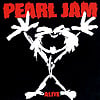this is gonna make me sound stupid
jdecker12
Posts: 41
okay, I have been playing guitar for awhile, but I don't really get into pedals too much. I just have a distortion pedal right now because I don't really perform for anyone or anything, I just kinda jam with friends. But I was just wondering what the difference between a distortion and overdrive pedal is? Is one better than the other or better for certain styles than the other?
Post edited by Unknown User on
0
Comments
-
kinda wondering the same thing.
Overdrive pedals are like gain.
Distortion pedals pedals can have many crazy sounds and effects.
I think overdrive just takes the natural tone of your clean channel and "overdrives it"
Where as distortion pedals bring in entirely different tone.
Someone will correct me if I'm wrong and I'm just guessing so...I miss you already, I miss you always
I miss you already, I miss you all day0 -
they're both noisy....and don't worry, there are no stupid questions......only stupid people.......:)0
-
Originally posted by brain of c
there are no stupid questions......only stupid people.......:)
I think I got a lil of both 0
0 -
Overdrive and distortions are varying degrees of the same effect. Basically, both increase the signal gain and then "clip" the wave-form of the signal. An overdrive is a lighter version, a distortion is a medium version, and a fuzzbox (Big Muff, Fuzz-Face, etc) is the ultra version.
Now, in conjunction with a good tube amp, an overdrive can push the input section a little harder, getting a bit more natural tube overdrive. A distortion will drive it about the same, but the signal will be clipped more going in, and the tubes will just add some warmth and compression. A fuzz will be the same, only more.
In a transistor (solid-state) amp, the warmth and character of tubes will not be added, which will make a certain overdrive, distortion, or fuzz sound quite different....and if you don't like it, you can suck on an egg.0 -
brilliant summation MIG.
I'll try to be as basic as possible.
Overdrive- uses volume and gain to overdrive (clip) the pre amp tubes (or semblemance of in a solid state amp) creating a softer edged distortion basically Overdrive gives your amp a boost so you get more of the natural overdrive of your amp although depending on your circuitry many overdrives have their own character. If you love the sound of your amps own overdrive you just want more at a lower volume level you need to get a boost or Clean Boost pedal to achieve that sound a clean boost ideally does in theory not change the EQ of your sound it just gives you more of what you have.
Distortion- able to create distortion on its own. This is a more compressed signal with a much higher potential gain level than an overdrive.My Girlfriend said to me..."How many guitars do you need?" and I replied...."How many pairs of shoes do you need?" She got really quiet.0
Categories
- All Categories
- 149.1K Pearl Jam's Music and Activism
- 110.2K The Porch
- 284 Vitalogy
- 35.1K Given To Fly (live)
- 3.5K Words and Music...Communication
- 39.4K Flea Market
- 39.4K Lost Dogs
- 58.7K Not Pearl Jam's Music
- 10.6K Musicians and Gearheads
- 29.1K Other Music
- 17.8K Poetry, Prose, Music & Art
- 1.1K The Art Wall
- 56.8K Non-Pearl Jam Discussion
- 22.2K A Moving Train
- 31.7K All Encompassing Trip
- 2.9K Technical Stuff and Help


